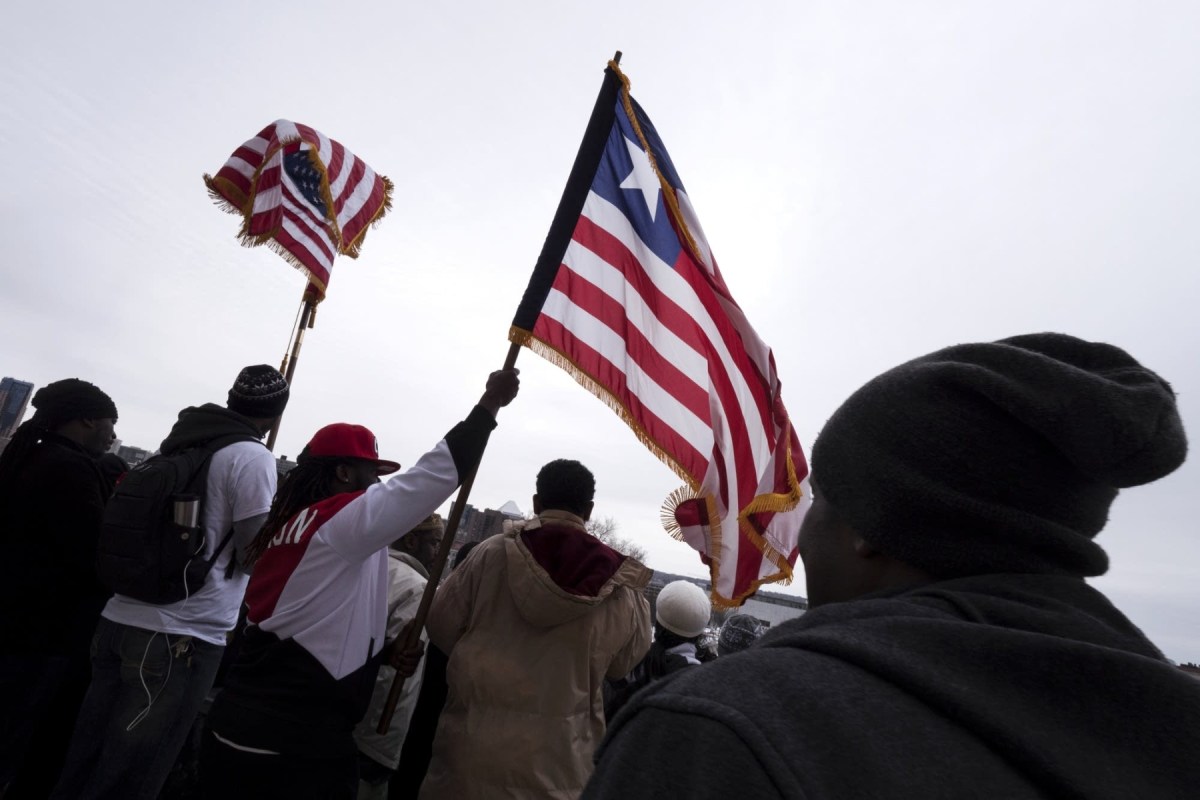The deadline is approaching for Liberians to apply for a rare path to U.S. citizenship, but immigration advocates have called on Congress to lift the deadline and allow more people to apply.
The Liberian Refugee Immigration Fairness (LRIF) program first launched in January 2020 under the Trump administration. Liberians approved for LRIF receive a green card and a chance to immediately apply for citizenship. An estimated 10,000 Liberians living in the United States are eligible for the program. About 3,500 applications have been filed in the last two years. In Minnesota, 556 applications were submitted as of June. Immigration advocates locally and nationally hope to see Congress lift or extend the December 20 deadline to apply so that more can take advantage of this unique opportunity.
Abena Abraham, a co-director for the Black Immigrant Collective, which offers legal services, mutual aid, and advocacy work for Black immigrants in Minnesota, said there have been barriers to applying.
“There’s a lack of trust,” Abraham said. “We had a super anti-immigrant administration that was in power when this bill passed so folks were really afraid to put their information out there because it could lead to deportation.”
An estimated 30,000 Liberians live in Minnesota, the largest population outside of Liberia. Before LRIF, around 4,000 Liberians in the United States had to reapply every year for Deferred Enforced Departure protections. It offered them temporary status on a yearly basis, but LRIF was meant to offer a more permanent solution for Liberians who fled civil war 30 years ago. It seemed almost too good to be true, Abraham said.
Abraham added that application fees, which can add up to more than $1,000 per person, have also kept eligible people from filing. Lifting the deadline could give attorneys and advocates more time to conduct outreach in the Liberian community.
Abraham also raised concerns about the slow processing time for applications.
“When it takes long, people are like, ‘Well, is this real?’ So that’s deterring people to apply,” she said.
RELATED STORIES
According to the U.S. Citizenship and Immigration Services (USCIS), the agency approved 860 LRIF applications in the last year. It denied 154 applications. Of the 3,500 applications received in the last two years, about 2,400 are still pending.
According to a spokesperson from USCIS, the processing rate for applications has steadily increased since July 2020. The majority of applications were submitted last year, and USCIS has received few applications since then.
“We share the urgency of advocates and leaders in the Liberian community,” the spokesperson said in an emailed statement to Sahan Journal. “USCIS continues to expand its engagement effort—particularly local outreach in key Liberian communities—to reach as many potential applicants as possible, and will continue to employ a robust engagement strategy to reach as many people as possible before the filing deadline.”
According to Breanne Palmer, a policy director for the UndocuBlack Network, a national advocacy group for Black undocumented immigrants, USCIS has begun to process applications more swiftly. But change has been slow.
For example, USCIS recently amended an application requirement to make it easier for applicants who are unable to get documents from the Liberian government proving they’re a Liberian national. That change went through on October 29—just a month and a half before the deadline.
“We’re encouraged overall by the way the program is going, but we’re really concerned that this deadline is still not enough time for applicants to put in applications,” Palmer said, “nor is it enough time for USCIS to work out all of the issues on their end.”
U.S. Representative Dean Phillips, who cosponsored the Liberian Refugee Immigration Fairness Act, attended a virtual news conference with Palmer on November 17 to discuss the future of LRIF.
“The sad news is that many, many who have made applications for their green cards or citizenship have not had their applications processed,” Phillips said, pointing to office closures during the COVID-19 pandemic. “I feel strongly, as do many of my colleagues in Congress, that we should, at the very least, extend or perhaps even eliminate altogether the deadline for these applications. It is the humane thing to do.”
The program was originally part of a 2019 national defense spending bill and was only supposed to last a year, but Congress passed an extension to the original deadline in 2020. To make changes to the deadline again, the Senate would have to amend the existing bill by the end of the year, Phillips said.
“Congress is the only body with the power to remove the deadline or, at the very least, extend it,” Palmer said. “We’re hoping that some of the LRIF champions on the Hill who care very much about the program and have a lot of Liberian constituents will be able to take it up as soon as they can.”



